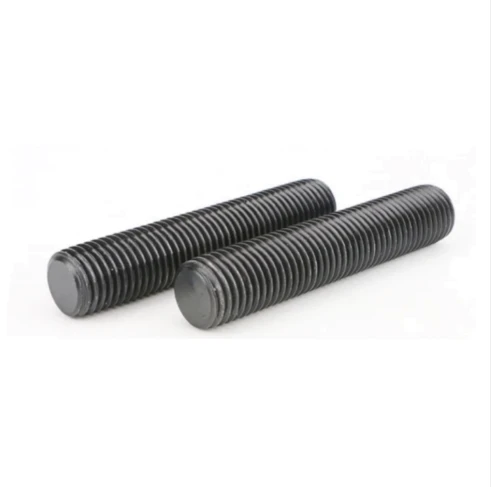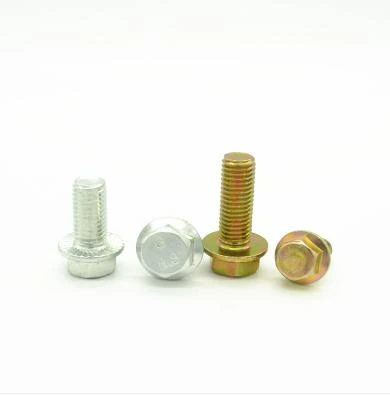stud bolt screw
Mar . 05, 2025 01:49 Back to list
stud bolt screw
Stud bolts are critical components in numerous industrial applications, providing the essential link in structures where fastening strength, reliability, and durability are paramount. They are predominantly used in industries such as oil & gas, petrochemical, and power generation, where the robustness of fastening systems directly impacts operational safety and efficiency. Understanding the nuances of stud bolt screws can dramatically affect the quality and performance of any project.
The authoritative nature of stud bolts is underscored by the stringent standards set by industries and international organizations. Standards such as ASTM A193 and A320 provide comprehensive guidelines concerning dimensions, materials, and mechanical properties. Compliance ensures that the bolts can adequately support the intended loads over extended periods. It is crucial to work with manufacturers and suppliers who have a proven track record of delivering products that meet these standards, as this collaboration guarantees that the bolts perform optimally within their designated contexts. Trustworthiness plays a significant role in both the selection and application of stud bolts. Partnering with suppliers who offer verifiable product certifications, traceability, and accountability ensures that the bolts you use uphold quality and compliance with essential safety standards. Furthermore, consistent training and familiarization with new technologies and techniques in bolt application enhance workforce competence, reducing the risk of installation errors and improving overall system reliability. In addition, leveraging advancements in technology, such as Computer-Aided Design (CAD) in the customization of stud bolts, provides a tailored fit for specific applications, elevating performance while reducing waste. These technological integrations signify a modern approach to tackling old challenges faced in heavy industries. In summary, the strategic application of stud bolts is the linchpin in achieving robust and safe structural connections in complex environments. The intricate blend of experience, technical proficiency, authoritative guidelines, and trustworthy processes ensures that stud bolts not only fulfill but exceed the demands of modern engineering challenges. As industries continue to evolve, staying informed about best practices and innovations in stud bolt technology will remain essential for maintaining efficiency, safety, and reliability in all applications.


The authoritative nature of stud bolts is underscored by the stringent standards set by industries and international organizations. Standards such as ASTM A193 and A320 provide comprehensive guidelines concerning dimensions, materials, and mechanical properties. Compliance ensures that the bolts can adequately support the intended loads over extended periods. It is crucial to work with manufacturers and suppliers who have a proven track record of delivering products that meet these standards, as this collaboration guarantees that the bolts perform optimally within their designated contexts. Trustworthiness plays a significant role in both the selection and application of stud bolts. Partnering with suppliers who offer verifiable product certifications, traceability, and accountability ensures that the bolts you use uphold quality and compliance with essential safety standards. Furthermore, consistent training and familiarization with new technologies and techniques in bolt application enhance workforce competence, reducing the risk of installation errors and improving overall system reliability. In addition, leveraging advancements in technology, such as Computer-Aided Design (CAD) in the customization of stud bolts, provides a tailored fit for specific applications, elevating performance while reducing waste. These technological integrations signify a modern approach to tackling old challenges faced in heavy industries. In summary, the strategic application of stud bolts is the linchpin in achieving robust and safe structural connections in complex environments. The intricate blend of experience, technical proficiency, authoritative guidelines, and trustworthy processes ensures that stud bolts not only fulfill but exceed the demands of modern engineering challenges. As industries continue to evolve, staying informed about best practices and innovations in stud bolt technology will remain essential for maintaining efficiency, safety, and reliability in all applications.
Next:
Latest news
-
Top Wire Bolts Suppliers | AI-Optimized Fast Delivery
NewsAug.02,2025
-
Top Metric Wood Screw Companies | Durable & Reliable
NewsAug.01,2025
-
Premium Lawn Mower Handle Bolts Supplier | Fast Delivery
NewsJul.31,2025
-
Premium Silver Screws Supplier | High-Conductivity Fasteners
NewsJul.31,2025
-
Silver Screws Supplier: High-Quality Fasteners for Various Industries
NewsJul.30,2025
-
Top Spike Wheel Nuts Supplier - High Quality & Custom Options Available
NewsJul.29,2025
